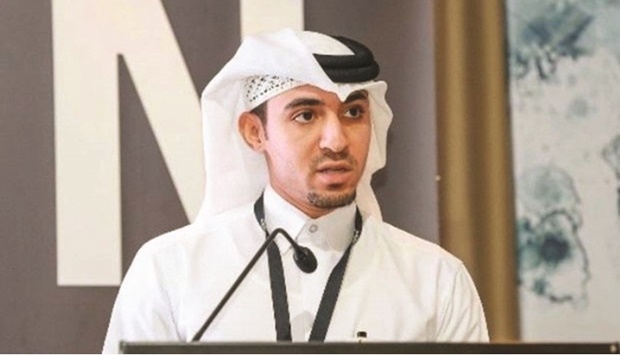The Ministry of Environment and Climate Change (MoECC), represented by the Radiation and Chemical Protection Department, announced the start of implementation of a project to operate the national network for monitoring non-ionising radiation. The project comes within the framework of monitoring all activities related to ionising and non-ionising radiation, and keeping pace with modern technology and international standards in this regard.
The ministry noted that the project is the first of its kind in the region, and aims to assess current legislation and its suitability with the international standards and the best practices of the developed countries, and prepare its development and implementation plans. The project also aims to prepare a field study in the country to determine non-ionising radiation of all kinds, conduct large-scale radiometric surveys, establish the national system for monitoring non-ionising radiation and build the necessary human and technical capacities for this system, draw up radiological maps of Qatar, and prepare induction plans for the public and workers.
Head of the Radiation Protection Section at the department Eng Hamad Salah Ibrahim said that the project will be implemented in three phases.
The first phase includes conducting an assessment of the national legislation on non-ionising radiation and proposing amendments to it in line with the international standards, and preparing awareness programs for the public and workers on uses, risks and prevention.
The second stage includes identifying residential areas crowded with elderly citizens and children, hospitals, schools, kindergartens, and recreational places and the extent of their exposure to radiation levels; designing continuous radiation monitoring networks as well as fixed, mobile and manual devices and accompanying technologies; identifying the possibility of expansion, increasing and updating the number of monitoring networks; establishing an integrated radiation database and maps; and preparing a comprehensive field study for the State to identify all sources of non-ionizing radiation of all types.
The third phase is devoted to training on the use of all devices and equipment, and on how to calibrate them, monitoring, evaluating results and writing reports based on the international and national standards. (QNA)
Head of the Radiation Protection Section at the department Eng Hamad Salah Ibrahim said that the project will be implemented in three phases.
The first phase includes conducting an assessment of the national legislation on non-ionising radiation and proposing amendments to it in line with the international standards, and preparing awareness programs for the public and workers on uses, risks and prevention.
The second stage includes identifying residential areas crowded with elderly citizens and children, hospitals, schools, kindergartens, and recreational places and the extent of their exposure to radiation levels; designing continuous radiation monitoring networks as well as fixed, mobile and manual devices and accompanying technologies; identifying the possibility of expansion, increasing and updating the number of monitoring networks; establishing an integrated radiation database and maps; and preparing a comprehensive field study for the State to identify all sources of non-ionizing radiation of all types.
The third phase is devoted to training on the use of all devices and equipment, and on how to calibrate them, monitoring, evaluating results and writing reports based on the international and national standards. (QNA)

